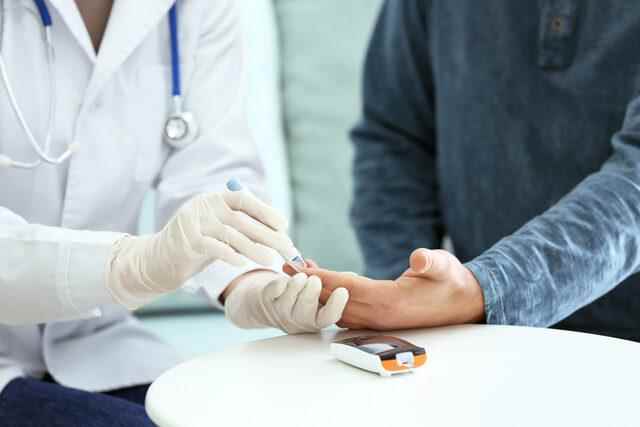Acıbadem Dr. Şinasi Can (Kadıköy) Hospital Endocrinology and Metabolic Diseases Specialist Dr. Özlem Sezgin Meriçliler “Extreme temperatures and sun also affect the dose of insulin. Since the absorption of insulin will be faster in a warm environment, patients using insulin may experience hypoglycemia, that is, low blood sugar. Again, if the cold chain of insulin is broken, that is, if the insulin pens stay above 25 degrees for a long time, blood sugar may rise uncontrollably because it will deteriorate and become ineffective.
8 IMPORTANT SUGGESTIONS SPECIALLY FOR DIABETES!
Dr. Özlem Sezgin Meriçliler explained the 8 rules that diabetics should pay attention to in order not to be adversely affected in hot weather, and made important warnings and suggestions.
STAY AWAY FROM THESE BEVERAGES AND FOODS
Stating that sugary carbonated drinks, lemonade and fruit juices raise blood sugar very quickly and they do not replace water, Dr. Özlem Sezgin Meriçliler said, “These drinks also cause an increase in the amount of urine and a decrease in the water content of the body due to their diuretic properties. Moreover, since they reduce the feeling of thirst, they cause a person to have less water intake. As a result, uncontrolled elevations in blood sugar can be seen both due to the sugar content of these beverages and due to the decrease in body water ratio. Diabetic coma can be seen in patients using insulin, and high sugar coma can be seen in elderly diabetic patients. says.
MEASURE YOUR BLOOD SUGAR FREQUENTLY
If you are outside in the sun or in hot weather, you need to measure your blood sugar more often than you always do. On days when exercise is more intense than you are used to, you may experience low sugar levels as your snacks will be less. Carry a sugar cube or a small fruit juice with you as an emergency measure against low blood sugar. Stating that blood sugars may rise if the time and contents of the snacks change, Dr. Özlem Sezgin Meriçliler says that people who use insulin may need to make additional doses.

USE Plenty of LIQUID
Be sure to increase your daily fluid intake in hot weather, as both water and electrolytes such as sodium will be lost with sweat in hot weather. Against the loss of electrolytes, you can drink 1 glass of ayran or plain mineral water a day. If diabetic patients do not take enough fluids in hot weather, their blood sugar may rise to levels sometimes called coma and require hospitalization.

NEVER WALK BACK FEET ON THE BEACH
Dr. Özlem Sezgin Meriçliler “Diabetes lasting for many years leads to a condition that we call ‘Neuropathy’, characterized by a change in the perception of nerve endings in the feet. Patients with neuropathy may sometimes feel a burning sensation, numbness, pain in the feet for no reason, but may not realize that a sharp object has injured their feet or that they have a burn under their feet in hot sand. Foot ulcers formed in this way progress rapidly in diabetic patients and can lead to serious complications.
STORE YOUR MEDICINE IN THE REFRIGERATOR
Since drugs, especially insulin, deteriorate rapidly when exposed to heat, it is necessary to store insulin pens on the refrigerator door shelf, and if you have to carry them, care should be taken to carry them without breaking the cold chain.

DRESS FOR HOT WEATHER
Since light and loose clothing helps to keep the body cool, if you are going to be outside for a long time, you can choose a loose and long-sleeved shirt.
STAY IN THE SHADOW
Since the heat effect of the sun is felt much more intensely when sitting under direct sun, take care to choose shaded areas when spending time outdoors. You can do exercises such as walking early in the morning or in the evening when the sun’s effect is less.
AVOID ALCOHOL
Dr. Özlem Sezgin Meriçliler “Alcohol has diuretic properties, so it increases fluid loss. Since fluid is lost through sweating in hot weather, dehydration, that is, a decrease in body water rate, and associated blood sugar elevations can be seen. Diabetes coma can be seen in patients using insulin, since the distribution of insulin into cells will be disrupted in case of dehydration. says.
